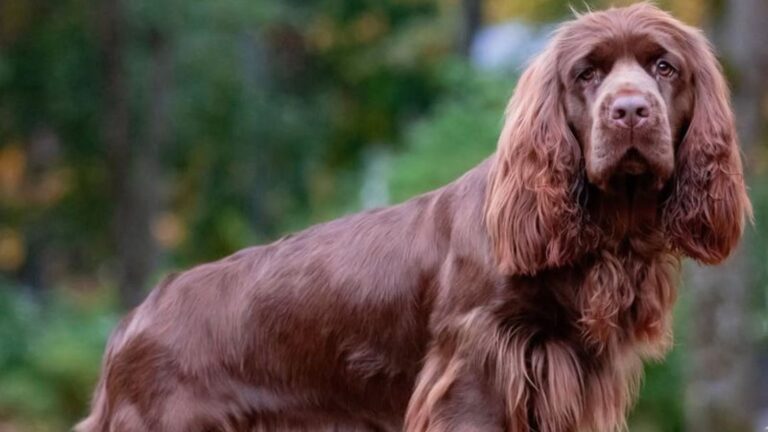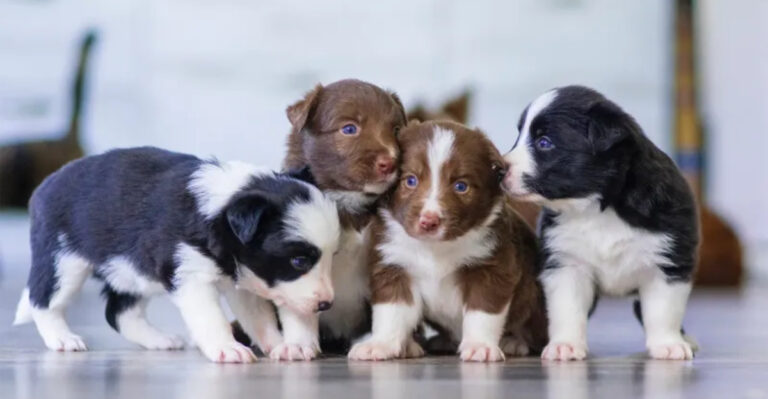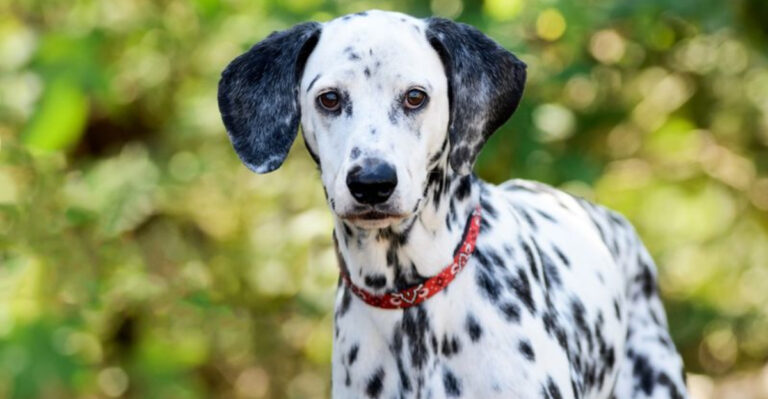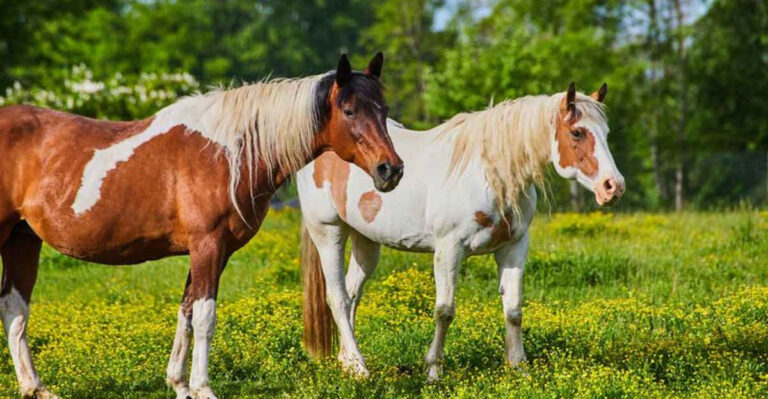10 Dog Breeds That Struggle With Other Dogs (And 5 That Thrive In A Pack)
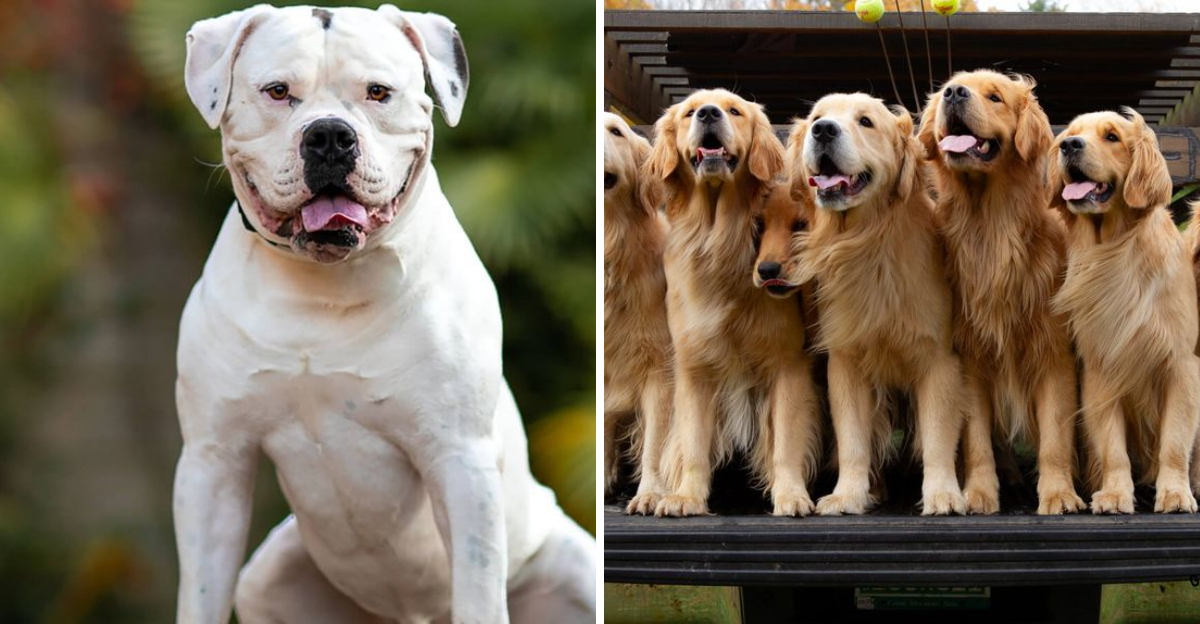
Ever wondered why some dogs just can’t seem to play nice with others? While many pups love having canine buddies, certain breeds naturally prefer flying solo.
Understanding these natural tendencies can help you choose the right furry friend for your household or manage existing pet relationships better. Let’s explore which breeds might need their own space and which ones flourish in the company of other dogs.
1. American Bulldog
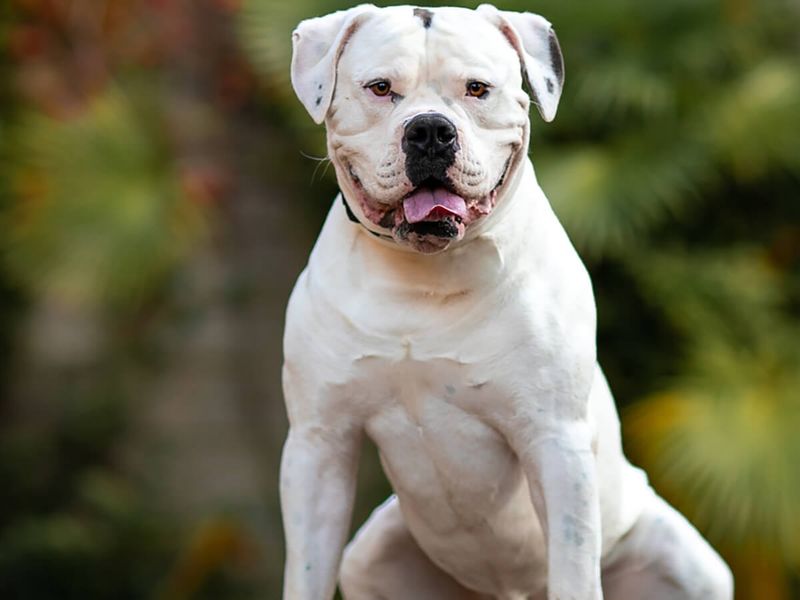
Loyal to a fault, American Bulldogs often view your home as their castle—and they’re the self-appointed security guards! Their protective instincts can trigger territorial responses when other dogs enter their domain.
Early socialization helps, but many American Bulldogs maintain a stubborn streak about sharing their space. They typically bond deeply with their human family while remaining suspicious of four-legged outsiders.
2. Chihuahua

Don’t let their tiny stature fool you—Chihuahuas pack massive personalities into those small bodies! These pint-sized pups often develop “small dog syndrome,” barking fiercely at dogs triple their size.
Many Chihuahuas bond exclusively with one person and view other animals as competition. Their bold, sometimes scrappy attitude can create tension in multi-dog households, especially with larger breeds they perceive as threats.
3. Akita
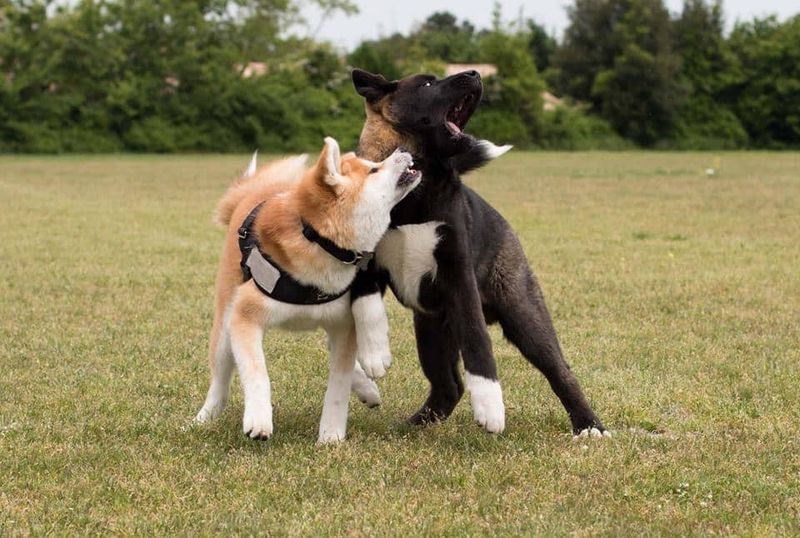
Regal and dignified, Akitas carry themselves with a quiet confidence that can quickly turn to confrontation around unfamiliar dogs. These Japanese treasures historically served as guardians and hunters, not social butterflies.
Same-sex aggression is particularly common with Akitas. They’re often described as “cat-like” in their independence and selective about their canine companions, preferring a calm household where they reign supreme.
4. Dachshund
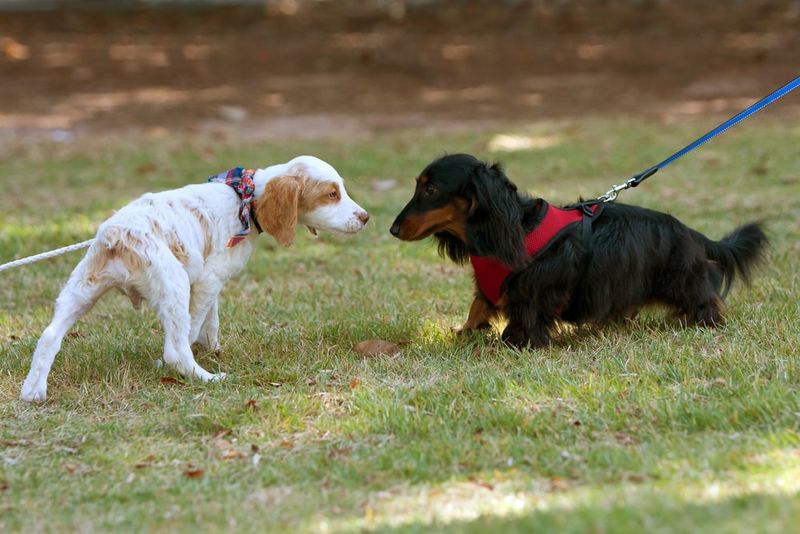
Those adorable sausage bodies hide a fearless hunter’s heart! Bred to pursue badgers into their dens, Dachshunds possess remarkable courage and determination that can manifest as stubbornness with other dogs.
Their loud, persistent barking often signals their discomfort around unfamiliar canines. Despite their small size, many Dachshunds believe they’re the toughest dog in any room and aren’t afraid to prove it!
5. Jack Russell Terrier
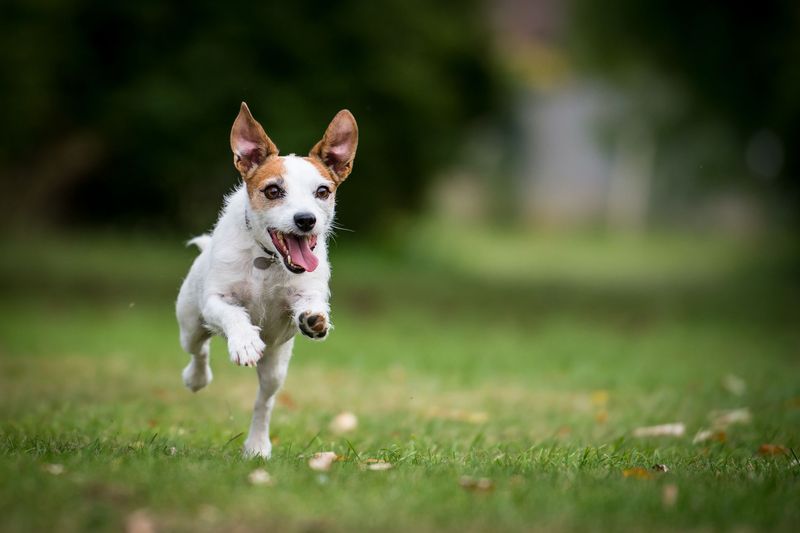
Boundless energy meets tenacious determination in these spirited little terriers! Jack Russells were bred to hunt foxes, giving them an intense prey drive that can redirect toward smaller dogs or quick movements.
Their feisty temperament and need to be “top dog” often creates friction in multi-pet homes. These intelligent pups require consistent training to channel their abundant energy positively rather than into confrontations with other dogs.
6. Border Collie
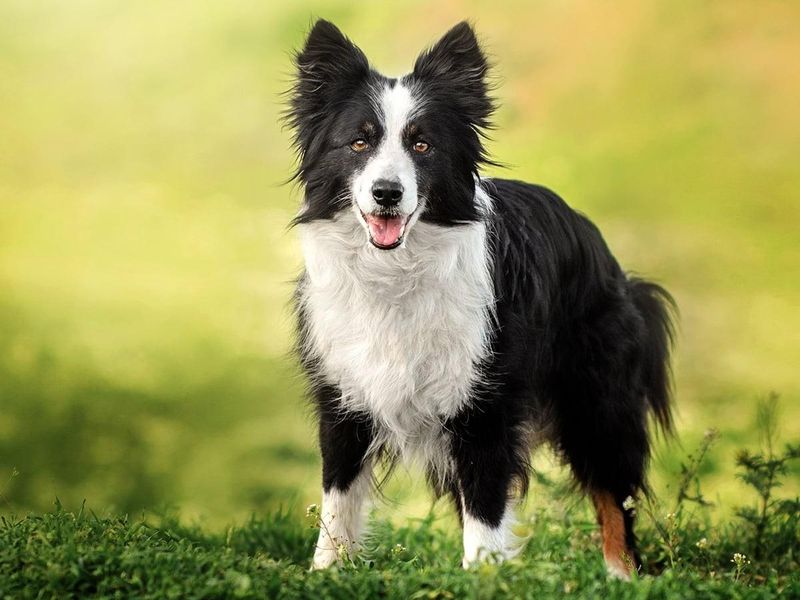
Surprising entry? These brainy herders sometimes struggle socially because they’re always on the clock! Border Collies’ intense focus and herding instincts can manifest as nipping, chasing, or controlling other dogs’ movements.
Their extraordinary intelligence means they notice every subtle canine interaction. Without proper outlets for their working drive, Border Collies might attempt to micromanage your other pets, creating tension in what should be relaxed play sessions.
7. Shiba Inu
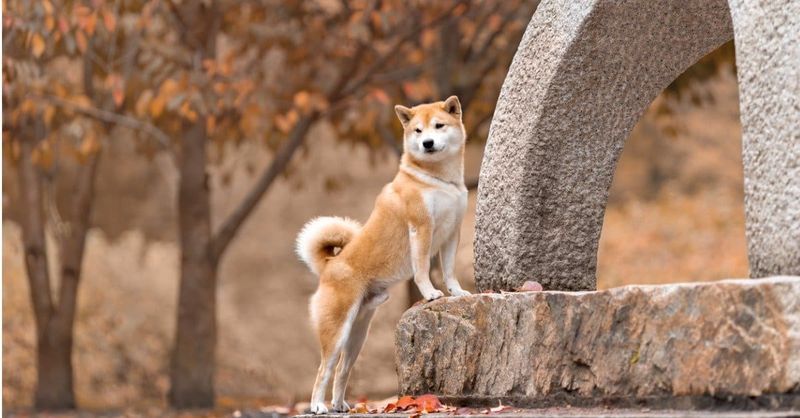
Behind that fox-like smile lies an ancient breed with a fiercely independent streak! Shibas often approach other dogs with caution or indifference, preferring their own company or that of their chosen humans.
The famous “Shiba scream” might emerge during unwanted social interactions. Their primitive nature makes them selective about canine friends, typically preferring structured interactions over chaotic dog park scenarios where their patience quickly wears thin.
8. Rottweiler
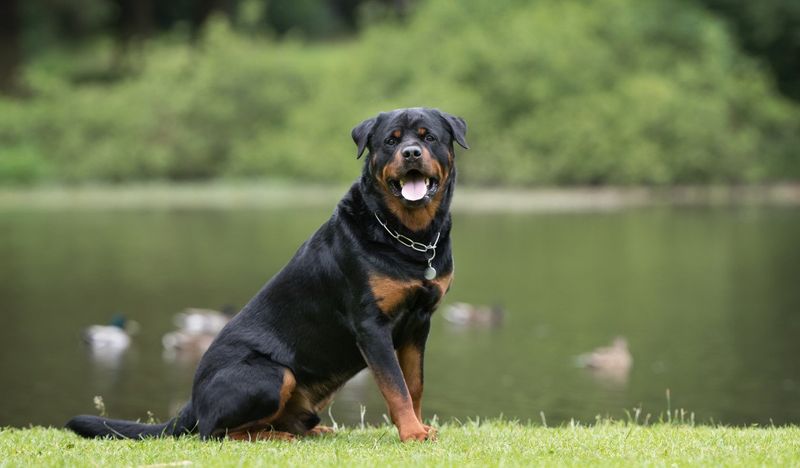
Powerful guardians with hearts of gold for their families, Rottweilers approach unfamiliar dogs with calculated wariness. Their protective instincts run deep, making them naturally suspicious of canine strangers entering their territory.
Without proper socialization, a Rottie’s protective nature can escalate to confrontation. These intelligent dogs need clear boundaries and consistent training to distinguish between actual threats and friendly neighborhood pups just wanting to say hello.
9. Pit Bull Terrier
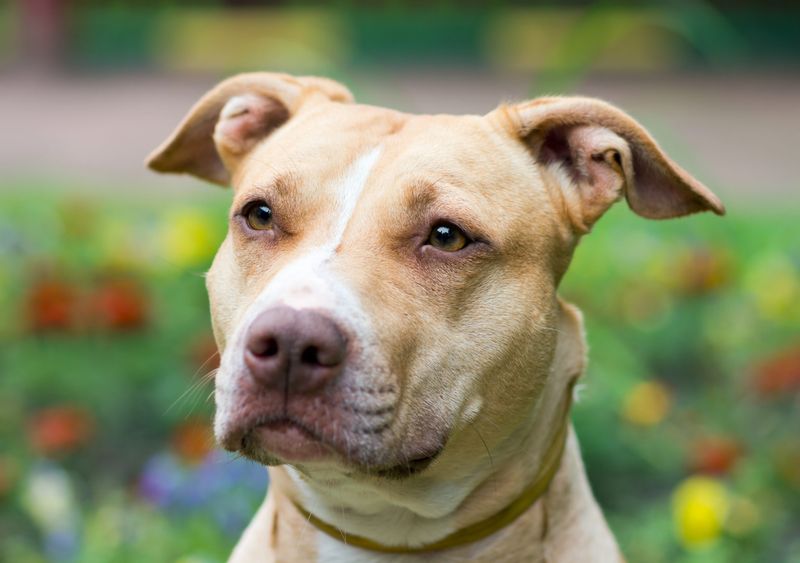
History has shaped perception more than personality for these misunderstood dogs. Pit Bulls’ terrier heritage can indeed create dog-selective tendencies, though many are perfectly sociable with proper training.
Their enthusiasm and strength sometimes overwhelm other dogs during play. Responsible Pit Bull owners recognize these natural tendencies and manage introductions carefully, often finding their pups form strong, lasting bonds with properly matched canine companions.
10. Chow Chow
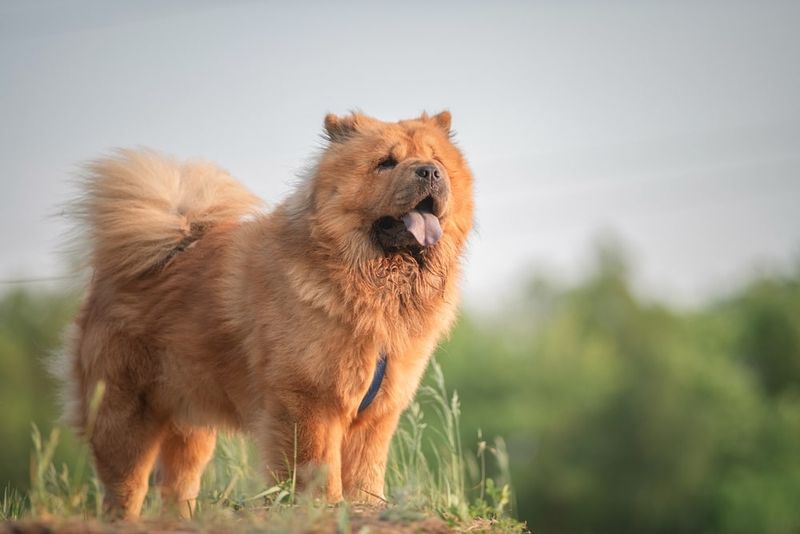
Beneath that magnificent lion-like mane beats the heart of an independent soul! Chow Chows typically maintain a reserved, almost regal demeanor that extends to their interactions with other canines.
Originally bred as all-purpose working dogs in China, they weren’t selected for pack cooperation. Their naturally suspicious nature and preference for personal space often translates to standoffish behavior around other dogs, particularly those with similarly strong personalities.
11. Golden Retriever
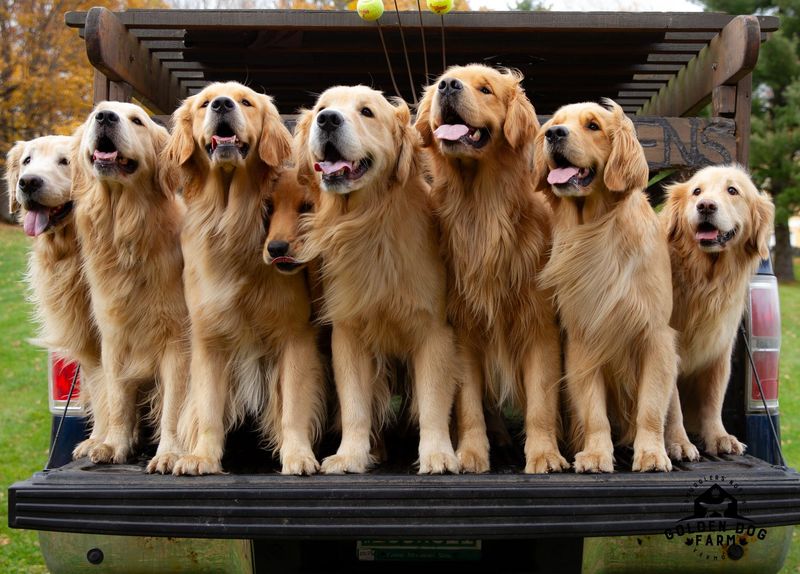
Meet the social butterflies of the canine world! Golden Retrievers approach life with a wagging tail and a “the more, the merrier” philosophy that makes them natural pack animals.
Their gentle play style and remarkable patience help them navigate multi-dog households with ease. Goldens possess an innate ability to read canine body language, adjusting their approach to make friends with everyone from tiny Chihuahuas to massive Great Danes.
12. Labrador Retriever
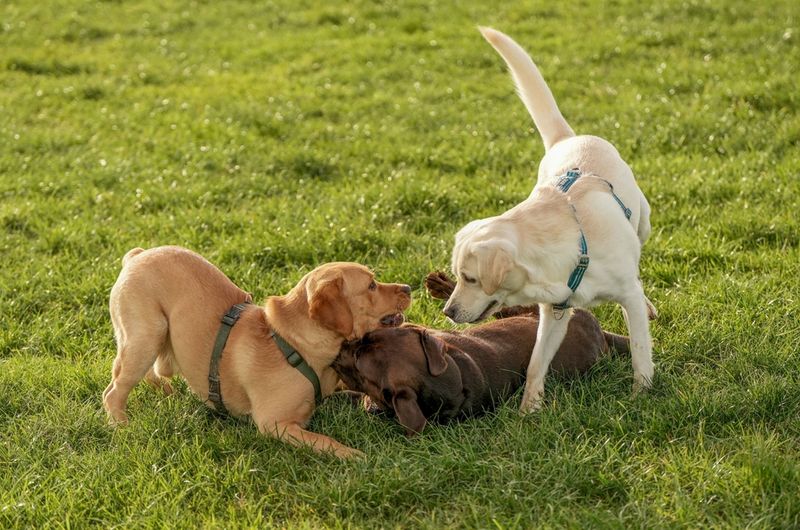
America’s favorite breed earned its popularity partly through its exceptional social skills! Labs view other dogs as potential playmates rather than rivals, approaching new friendships with enthusiasm and optimism.
Their adaptable nature means they can match energy levels with various playmates. Whether romping with a puppy or respecting an older dog’s boundaries, Labradors excel at reading the room and adjusting their behavior accordingly—a true social intelligence that serves them well in pack settings.
13. Cavalier King Charles Spaniel

Royal heritage meets puppy-like sweetness in these gentle companions! Cavaliers were bred specifically to be amiable lap dogs, resulting in a remarkably non-confrontational temperament perfect for multi-dog homes.
Their adaptable, easygoing nature helps them fit into established pack hierarchies without rocking the boat. Cavaliers typically form fast friendships with other dogs, sharing toys and sleeping spaces with minimal fuss—true diplomats in the canine world.
14. Siberian Husky
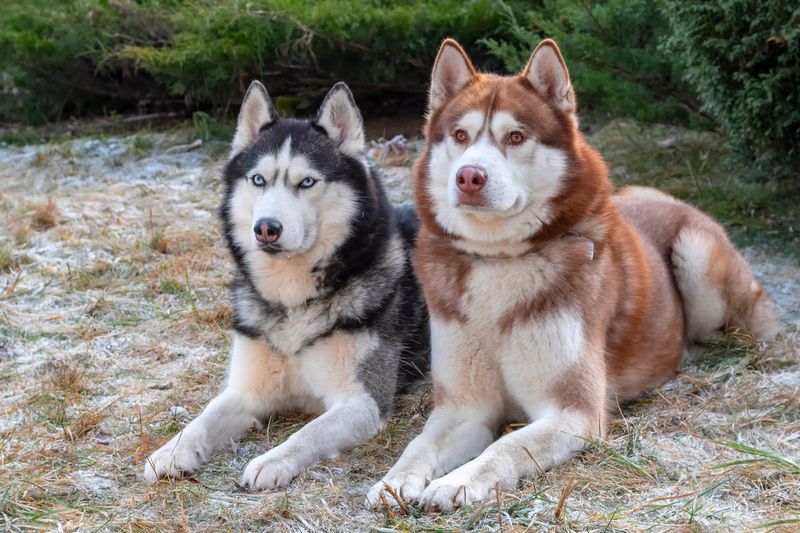
Born to run in teams across frozen tundra, Huskies have pack living coded into their DNA! These arctic athletes typically develop depression when forced to live as only dogs, craving the social structure of canine companions.
Their playful nature and low aggression make them natural pack animals. Watch a group of Huskies together and you’ll witness a beautiful choreography of play, rest, and communication—behaviors refined through generations of cooperative sled pulling in harsh environments.
15. Boxer

Perpetual goofballs with hearts of gold, Boxers bring comic relief to any multi-dog household! Their play-oriented personality and boundless energy make them excellent companions for other active breeds.
Despite their muscular appearance, Boxers typically show remarkable gentleness during play. They excel at reading canine social cues and adjusting their boisterous behavior accordingly. Many Boxer owners report their dogs actively seek out playmates, appearing happiest when part of a lively pack.

